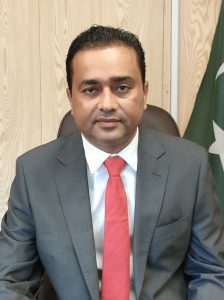Pakistan should adopt Chinese model of water purification: PCJCCI chief

Lahore: Pakistan-China Joint Chambers of Commerce and Industry (PCJCCI) President Moazzam Ghurki has said that Pakistan should adopt Chinese model of water purification to control waterborne diseases due to the devastating flood in 2022.
These diseases were causing a loss of up to US$1.3 billion every year, and the unclean water was the biggest source of gastrointestinal infections.
Chairing a meeting here at PCJCCI Secretariat, he said that the purpose of the meeting was to discuss Chinese water management system and purification technology so that Pakistan could benefit from the Chinese experience. The replication of this system could overcome water diseases in Pakistan, particularly in backward cities of Sindh and Balochistan that were not getting access to clean water.
Ghurki suggested, “We should install water filtration plants based on solar power permanently and manual mechanism based on the area needs and population capacity to handle the equipment. The solar based filter could purify 1,500 litres of floodwater per hour.
However, the manual filter as compared to the solar based only had a PLP wheel and a handle attached to it for drawing water into the filters whereas the rest of the technology was the same.”
On this occasion, PCJCCI Senior Vice President Fang Yulong said that China’s global freshwater sources were merely six per cent whereas they had to provide clean drinking water to 20 per cent of the world’s population. However, with years of research and exploration, China had devised a water purification system that not only enabled it to meet its water needs but also provided people with medically approved healthy water.
Vice President Hamza Khalid said that the water crisis was a global issue and now China wanted to benefit the world, since Pakistan faced such a crisis particularly in Sindh and Northern Punjab it was important to introduce such plants to Pakistan.
Salahuddin Hanif, Secretary General PCJCCI, appreciated the opportunities and agreed that the country was in dire need of such a system.





